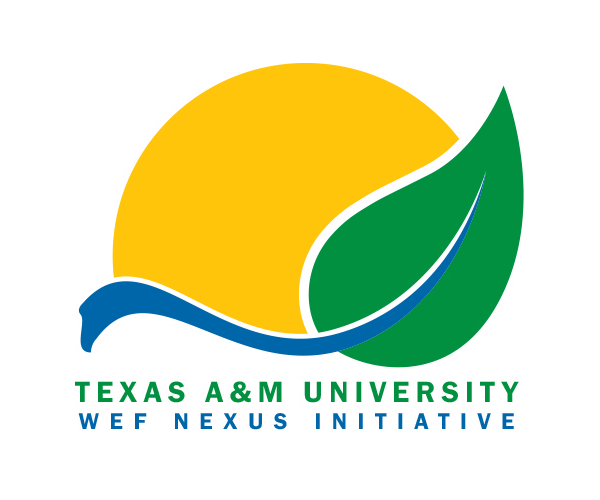
The American University of Beirut (AUB) is expanding the impact and scope of the Texas A&M Water-Energy-Food Nexus Initiative (WEFNI) effort through its new initiative – the Water-Energy-Food-Health Nexus Renewable Resources Initiative (WEFRAH).
The WEFRAH Initiative, under the guidance of Dr. Rabi Mohtar, the dean of the Faculty of Agricultural and Food Sciences at the American University of Beirut and TEES Research Professor at Texas A&M, has expanded the portfolio of WEFNI and is now addressing a very important problem revealed during WEFNI’s investigations in San Antonio, Texas, and across the world. WEFNI researchers and scientists became increasingly aware of nutrition, the insufficient supply and poor quality of water around the world, and the implications of these factors for human health and well-being. The team learned that an analysis of the interconnectivity between water, energy, and food was deficient if health was not also considered – particularly when considering the WEF Nexus goals for sustainable development.
Water, energy, and food security are inextricably interlaced with human, environmental, and financial sustainability. Efforts to increase the sustainability of these elements naturally results in benefits for both humans and nature. By introducing health as the fourth element of the nexus mindset, the WEFRAH Initiative is paving the way for the optimization of human health and well-being addressed in many of the United Nations Sustainable Development Goals.
“The 17 goals were identified to allow people to step out of their silos, reach beyond them and work with others who have other parts of the puzzle, to ultimately achieve a sustainable world,” said Mary Schweitzer, administrator of the Food-Energy-Water Nexus within the Texas A&M Energy Institute at Texas A&M University. Some of the sustainable development goals include eradicating poverty and hunger, improving health and the quality of education, creating affordable and clean energy, bettering water and sanitation, enhancing climate action, improving life below water and life on land, and more.
Insufficient water supply, healthy diets, and poor water quality, a lack of energy or inconsistent energy, as well as unreliable or unsafe food supplies have innumerable implications for health – particularly when these factors are combined. Human health outcomes, the WEFNI goals, and the UN SDGs, like ending poverty, improving education and creating drinkable and high-quality water, depend on all three elements – water, energy, and food – working together to maximize the quality of life.
The WEFRAH Initiative is inviting further collaborations between Texas A&M and AUB for a partnership to advance the Nexus. “AUB is the oldest University in the region with a history of positive impact on the middle east and beyond. It offers a high-quality education and is a hub for innovation and community development. If it can be done, I think the AUB is in a good position to do that,” said Mohtar.
Through efforts to emphasize public health as a significant element in enhancing the livability of various regions around the world, awareness is brought to the interlinkages of the Nexus to health, and will eventually bring the initiative a step closer to sustainable development.
The WEFRAH Initiative at AUB is positioned in an extremely vulnerable region. This area, like many areas in the Middle East, is extremely turbulent because of two diverse factors: an extreme climate and volatile political tensions.
The area is home to several impactful institutions, the current political climate, and atmospheric climate change are both having strong effects on the sufficiency of water, fuel, or food security in the region. This mix creates a model living laboratory to monitor the impacts of scarcity in the region.
“We are trying to build more resilience in the water and food security sectors. The competitiveness of these sectors has suffered due to setbacks like lack of interest, lack of stability, and lack of technological advances. I think the work we do will help revitalize this sector,” said Mohtar.
Mohtar hopes the WEFRAH Initiative will allow him to carry on the important work of building human security and resilience in the Middle East and improving the quality of life in Lebanon and beyond.
With the expansion of the initiative to the Middle East and human health, the WEFRAH Initiative and WEFNI will not only be able to tackle the sustainable development goals, but they will also be able to address one of the fundamental goals of the initiative – to raise consciousness and understanding of interdisciplinary topics and challenges.
“This Nexus will integrate agricultural, scientific and engineering, technology, social sciences, and humanities as well as private, public and sectors and civil society to build resilience for water, energy, and food and try to create a synergy between them that allows for abundance,” said Mohtar.
WEFNI and the WEFRAH Initiative are furthering the knowledge of students and researchers on the interconnectedness of the Nexus through worldwide lessons cultivated from the examination of local regions. The Initiative is utilizing multidisciplinary research and emphasizing the importance of inclusiveness and promote the Nexus between these four crucial elements.
“I hope that such activity in research, engaging the community, and developing and expanding the roles of students in society will increase resilience for an abundance of availability of food and from an economic perspective,” said Mohtar.
For more information, visit https://www.aub.edu.lb/fafs/WEFRAH/Pages/default.aspx.
